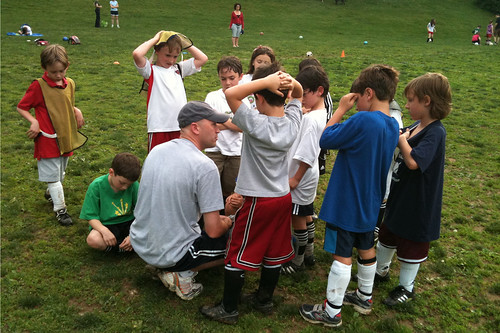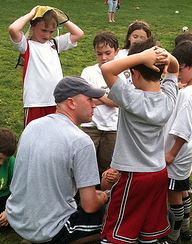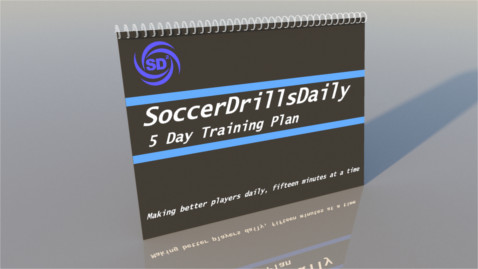
This is part three of our four part series on how to learn how to prepare for difficult opponents based on the US National Soccer Team’s World Cup draw. If you missed part 1, check it out here, or part 2 here. In short, the US National Team ended up with three very difficult games to start the World Cup, and we are analyzing the way the US team is reacting to this situation and what we can learn from their reaction. We determined there are four things we can learn from the US National Team in this situation.

The official ball of the World Cup, the Adidas Brazuca World Cup Soccer Ball
1. Treat it as an opportunity
2. To be the best, you’ll have to beat the best
3. Create a game-plan
4. Use the conditions to your advantage
This week we’re going to talk about item #3 – “Create Your Game Plan”
Now that you know that in the future you’re going to have to play a tough team, your next step is to figure out how you’re going to approach your game against that tough opponent. How do you approach a matchup against a tough opponent? You have to create a game plan! A game plan is a strategy you develop for playing against your opponent. It’s the plan that you make for how to win that game.
When you face a difficult opponent, you will almost always perform better if you have a game plan. There are three things that you have to do in order for your game plan to succeed – research, planning, and execution.
Research is watching the other team and figuring out how they play. What are their strengths? What are their weaknesses? Are there parts of their game that you can exploit to your benefit? The answers to these questions will shape your game plan. In order to get this info, you’ll have to watch your opponent play. This may mean that you have to travel to one of your opponent’s games. When you watch them, make special note of things like how often they pass the ball, if they get tired quickly, and who their best players are on offense and defense. These are all things you can use to develop your game plan.
A great example of a game where this will be necessary will be the US National Team’s upcoming matchup against Germany in the World Cup. Earlier this year, the US defeated Germany 4-3. In that game, the players that Germany put on the field in that game weren’t their usual starters. However, the US will definitely review tapes of this matchup and tapes of the German National Team’s other games to learn about Germany’s style of play and strategy. This is the research phase of their game plan preparation.
Once you’ve completed your analysis of your opponent’s strengths and weaknesses and come up with a plan to exploit them, it’s time for preparation. This means working on whatever skills or attributes you need in order to implement your plan. For example, imagine you’re going to play against a team that is very fast, but they get tired quickly. A good game plan against a team like this is to beat them with superior fitness. You’ll simply run and run and run until they can’t keep up with you anymore. Preparation for this strategy would be to do a lot of fitness training so that your fitness will be superior on game day.
The final part of this process is execution. This is the point where you actually put your game plan into action. The key to execution is to have faith in your strategy and stick with it. Sometimes, your game plan will not work initially. This happens for a variety of reasons. It’s really easy when things don’t work initially to want to immediately try something else. However, if your preparation was good, and your game plan was well thought out, you should stick with it. Keep hammering away and don’t quit, and it will pay off eventually. Don’t allow yourself to get frustrated. Instead, stay focused on your goal of winning and your plan of how to get there, and you will be successful.
Next week – Use the conditions to your advantage
Photo Source – Adidas Brazuca by Damianvila, Boys Soccer Practice by WoodleyWonderWorks




